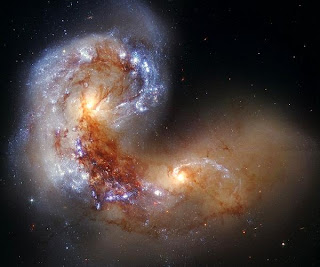Summer in the desert is starting to wind down, on this, the first week of September. You wouldn't know it just from the temperature, because it was 110 degrees today. It sure felt hot outside and the next couple of days are predicted to be moderately cooler, maybe all the way down to 108 degrees. Summertime kind of quietly weasels its way into your life during the month of May, but it always needs to be dragged out - kicking, screaming and clawing the ground - all through September and half of October.
But there are subtle indications that the wheel of the seasons is beginning to turn. It is becoming noticeably darker earlier these days. When I left the gym yesterday at 6:55 pm the sun had already set, the first time that has happened since last April. I read something where the sun's position in the sky doesn't change much from the summer solstice on June 21st through Midsummer Day (this year on August 6th). After that date, the sun begins to move more swiftly in its southerly journey to the autumn equinox and then the winter solstice.
In the nighttime sky, when it's not full of monsoon clouds, the stars are starting to belie the passing months. Scorpio the Scorpion is beginning to slink away toward the southwest horizon. For just a couple of weeks, you can spot two beautiful crowns in the sky - Corona Australis, the Southern Crown, a little below the scorpion's glittering stinger, and Corona Borealis, the Northern Crown, low in the western sky not far from the sparkling orange Arcturus, one of the brightest stars in the sky.
The Great Square of Pegasus is starting to vault its way up the eastern sky. A large, nearly perfect square, it's easy to spot and is a sure sign of autumn. A little less obvious is the constellation of Andromeda, hanging on to one of the corners of the Great Square for dear life and trailing it as it rises in the sky. With binoculars, it's not hard to spot a smudge of dim gray light in the boundaries of Andromeda, and the multi-million-year-old light which finally has made its way to your retinas after crossing a gulf of 12 quintillion empty, frigid miles. This is the Andromeda Galaxy, an island universe of billions and billions of stars, similar in shape to our own home galaxy, the Milky Way, but even larger.
The two galaxies are part of what's known as the Local Group, a collection of dozens of galaxies bound together gravitationally in our own little neighborhood in space. Astronomers are pretty sure Andromeda and the Milky Way are speeding toward each other, and will most likely collide in a couple of billion years. Surprisingly, they also think the two galaxies will just pass through each other, the distance between individual stars being vast enough so that the probability of a star running into another star is extremely low. But the collective gravitational tidal forces will be more than enough to bend and warp the two galaxies into very distorted shapes, and invariably millions of stars will be cast off into intergalactic space, to wander the deadly cold vacuum as rogue stars, in desolate solitude. Over even more billions of years the two galaxies will dance and loop around each other, colliding over and over again. Eventually, in the far distant future, the galaxies will merge into a super-galaxy and probably even the supermassive black holes in the two galactic centers will merge into one ultramassive black hole.
In fact, astronomers have spotted a couple of galaxies, 30 times farther away than Andromeda, which are in the process of colliding. This ultra-slow train wreck of galactic proportions has been going on for hundreds of millions of years and will continue on for many more millions, leaving a huge mess of stars, gas, and dust strewn over an impossibly vast area of space:
So, sometimes I think about our home galaxy being on an unavoidable collision course with an even larger galaxy, and I dream about what that might look like, assuming Planet Earth is still in one piece and there will be humans living on it in a couple of billion years. No matter who or what is around at that time, it will be the greatest show in the entire universe. For now though, I have to be content with dreaming about the cool, crisp autumn mornings which are also slowly, inexorably inching their way to us, and the dramatic cranberry-colored sunsets which give way to dark, deep and chilly nights. And the 110-degree summer days will be a distant memory.
Subscribe to:
Post Comments (Atom)



No comments:
Post a Comment